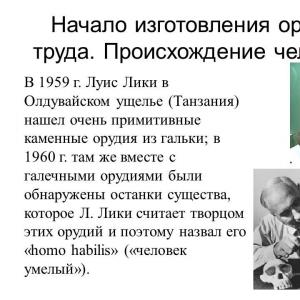How to play the game my ship. There is such a game
16, ardnaskela20 = 72, himmelsweit = 30, iliysakucc = 67, ivanovishe = 30 (60), lanemru = 49 (79), masha1122 = 0, mashkin_84 = 56 (116), obi_van_ki_ro = 18, perrou = 73, sapiv = 27, savelieva_arina = 22, noise_kaa = 48, snow07 = 9, soroka_nata = 78, tania_al = 111.
I wish everyone warmth and creativity for the second half of summer!
Lesson 7 (81). Word games
The name “Word Games” is conditional. One could add “literary” or “linguistic”, but this is not enough. It would be more accurate to say “literary studio games” because they are taken from my book “Literary Studio: Unlocking Possibilities” and have been used in various literary studio activities. Yes, they still apply.
There was already one lesson on a related topic:
Literature as a game and literary games:
The idea of this activity is not so much to entertain the people of Izyum, but to give each of you some kind of gaming tools for creative communication in a company, which is also useful for developing skills in working with words. This is of particular importance in cases where we communicate with children or teenagers (therefore I leave some pedagogical notes in the description of games), although all this is quite suitable for adults.
Simple word games
Chain of words
One of the participants says a word, the next one comes up with a word starting with the letter with which the previous one ends. Only singular nouns are used (with the exception of those words that only have a plural) in the nominative case. If a word has already been encountered in this session of the game, it cannot be repeated.
You can prohibit the use of proper names (optional). If a word ends with a letter with which the word cannot begin (for example, a soft sign), the next word must begin with the second letter from the end. Additional restrictions increase the level of difficulty and give the game its own special character. For example, say only geographical names or only animal species.
For all its simplicity, the game trains the skills of word search (at least for a given letter), word formation (the proper name “Cuba” cannot be said, but “Cuban” or “Cuban woman” can be used), accessing not only the active vocabulary, but also passive, expands vocabulary due to the ingenuity of the players.
Many words from one (Compositor)
Compose a word from the letters included in the selected word. Each letter can be repeated to form a word only as many times as it appears in the original word. You need to look for common nouns in the nominative case, in the singular (if any). You can write to everyone on their own piece of paper, then check (for each word there are as many points as the number of participants who did not write it).
Advantages of the game: expansion of vocabulary, attention to word formation methods, development of word taste.
Loading the ship
Development of memory, imagination, associative thinking.
The first player says, for example: "I am loading the ship ... ORANGE." The second one takes the baton: “I’m loading ORANGE onto the ship and... GOOD MOOD.” A third adds his own: “I’m loading the ship with ORANGE, GOOD MOOD and... BLUE MOON.” Everyone’s task is to repeat the entire previous chain, adding another weight at their discretion at the end. Whoever failed to repeat all the previous ones (hints are prohibited) is out.
Frame
In the designated time, you need to compose as many words as possible (options: a list of individual words, or a coherent story, or a rhyme) so that each word contains a predetermined consonant.
Options: ask not one, but two consonants, or one or two vowels. Of course, the more given, the harder it is to invent.
The game teaches you to look inside a word, take a closer look at its letter composition, and look for words that are similar in at least one sound (useful for using alliteration).
Games with rhymes
Monorim
The host or one of the participants composes the first phrase of the future poem. For example, for "Zest" I would choose the line:
Learning to write online...
Everyone adds a line, picking up the content of the first line in their own way. using the same rhyme every time. For example:
I kept it a secret for a long time...- meaning that he later became famous and received the Noble Prize.
The next author has his own vision of the plot, and he sharply turns in his direction:
But one day, tame bears...
Someone comes up with an idea to support this turn of the topic:
They brought me a sausage in an omelet...
But the next one has its own plot twist, etc.
You can record a monorim with the initials of those who added this or that line marked, so that everyone’s contribution is visible.
Game option: lines are added in a chain, and the one who could not add a line within a certain time is eliminated.
There are two important aspects to this game: developing the ability to search for different rhymes for one word, and training to coordinate the search for a rhyme with the search for a plot device.
General Burime
Through general discussion, participants come up with two pairs of rhymes (or the leader suggests them). Everyone must compose a quatrain using these rhymes as cross rhymes (options: encircling, adjacent).
The training meaning of this game and the next two is clear.
Circular Burim
Each participant comes up with two pairs of rhymes, writes them down and gives the piece of paper to the neighbor on the right (receiving a piece of paper with rhymes from the neighbor on the left). It is necessary to compose a quatrain using these rhymes as cross rhymes (options: encircling, adjacent).
The couplets ricochet
Each person comes up with the first line of the couplet, writes it on a piece of paper and passes it on to the next person. He finishes the couplet and returns it, along with the invented first line of a new couplet, which the partner must complete. You can set the participants up to believe that the more strange, provocative the first line is, the more interesting it is to play, puzzling the other.
Option: play in the round, but then, probably, not by ricochet, but in the round.
Games with aphorisms-definitions
Define THIS through THAT
Each participant writes two words on two pieces of paper. The presenter collects them, shuffles them and distributes two pieces of paper again, asking them to mark (without opening): 1 and 2. You need to determine word-1 through word-2. Option: you can allow word-2 to be defined through word-1, according to your own choice (then there is no need to number it).
A very useful game for understanding the semantic relationship of all words in the language. And, of course, for everything that is developed in the author by inventing aphorisms and definitions. We have talked about this more than once.
Duel of Determinants
You can play with two or an even number of participants. However, one of the participants can be an arbitrator for controversial situations.
Everyone splits into pairs. Everyone writes a word on a piece of paper: simple, well-known and clearly written. Partners in a pair (duelists) simultaneously exchange pieces of paper, after which each comes up with a definition for the received word and returns it to the partner or presents it to the referee (whoever gets it first gets a point). After that, you can come up with another word - and the exchange of sheets is repeated until someone scores a set number of points. You can pass the sheets in a circle (circular duel).
A very effective and fruitful game. It is important to prepare participants before starting to think about the definition as little as possible. This helps them release some of the clamps.
Games with word meanings
Contact
One of the participants thinks of a word and names its first letter. Any of the other players can indirectly describe their guess (you cannot directly say the guessed word). For example, I think that the word “honey” is intended, and I say: “You are planning something sweet and flowing.” If the other player also has a guess based on this description, he says: “There is contact,” then both (others can join them) count in unison to ten, after which they simultaneously pronounce their guesses. From the moment the description of the guess is given until the end of the countdown, the planner can say: “No, this is not honey.” If he didn’t have time, but the answers said in chorus coincided, he must either agree with the answer, or (if he has something else in mind) name the next letter of the planned word. If the answers given in chorus do not coincide, the guess does not count, but each of those who guessed can give a new description of their guess, clarifying it and calling the others “for contact.” The winner can be considered the one whose word was guessed the longest.
The game develops the ability to describe a word and guess the word from the description, and also develops synonymy and associative thinking.
Shoots from the root
A short word is selected (for example, CIRCLE). Everyone can offer a word of the same root (this is suitable for those who are weaker; to complicate the game this can be prohibited) or its imitation, including with some distortion of the word (KRUGAN, KRUGAN, CIRCULATION for action, KRUG, KRUKHOK, etc. ). If you play for results, you can give a point for each word.
The game shows how close many words are to each other and sometimes even one letter or sound changes the semantic pattern of the word. Develops the ability to create neologisms.
Writing games
There is no subject without a plot
The presenter brings each of the players an opaque bag with small objects, of which there are slightly more than the participants. You need to get one of them without looking into the bag. After this, you need to come up with a plot related to this subject (orally). Option: write a short story or fairy tale about this subject. (When everyone has taken out their items, you can once, if you mutually wish, exchange items with another participant.)
Peredvizhka (Nonsense)
The presenter writes on the board or asks questions sequentially. Each participant writes a phrase on a piece of paper that answers the next question, folds the strip on the piece of paper so that what is written is not visible, and passes it on to the next person.
An approximate set of questions (it can be varied): WHERE was it, WHO was it with, WHAT happened to him (her, them), WHAT did he (she, they) dream about, WHAT HAPPENED, HOW IT ALL ENDED, WHAT WERE SAID at these are people.
After everyone has written an answer to the last question, you can read the results out loud. It is interesting to see how each person leads their line and what successful results arise as a result of the diversity of intonations.
Alphabetical history
A letter is chosen, and all participants, within a given time, must compose a story in which all words begin with this letter. The degree of absurdity is not limited, but the phrases must be grammatically correct. The author of the story with the longest word count wins.
Option (especially for children): prepositions are allowed, no matter what letter they begin with.
Guessing Games
Guess what you have in mind (On earth or in heaven)
One of the participants comes up with a word (for authenticity, it is better to write it down on a piece of paper, but not show it to anyone until the end of the game). The rest ask questions to guess what is planned. There are three possible answers: “yes”, “no”, “not significant”. The game continues until the word is guessed (either in time, or until the number of questions set in advance).
Here it is important to choose the main directions for questions about the properties of what is planned, to be able to formulate questions and change their focus, to select characteristics so as to reveal the essence of the subject.
Who am I? (for some reason this game is sometimes called “Crocodile”)
Each participant takes turns leaving the room. The rest at this time come up with a literary character for him. After that, he enters and a piece of paper with the name of this character is pinned on his back. (Option: to make the game take less time, the presenter can prepare pieces of paper with the names of the characters in advance and attach them to each person’s back himself.)
The participant himself should not know what kind of name is on his back. He must find out this by asking the other participants in the game questions in turn, the answers to which must be only the words “yes” or “no”. Everyone asks one question to all the players, then the next one does it. At any time you can make an assumption about which character is assigned to you. The one who guessed his character first wins, but you can continue to play until the last person guesses it. The game is played on their feet: everyone can ask the other to turn around to remember the name attached to his back.
Who will go north
The driver says, for example, the phrase: “I will go north and take honey with me.” The next one suggests: “I’ll go north and take sugar with me” (assuming that the leader has a rule: take something sweet with you). “No, you won’t go north,” the driver announces (because he had something else in mind: to take something fluid with him). The turn to propose moves further down the chain. The one who guessed what was going on will say, for example: “I will go north and take water with me.” “Yes, you will go north,” the driver confirms, and the one who guessed gets a point (after that, continuing to participate in the game and thereby demonstrating, together with the driver, the guessed rule in action).
Thus, the driver needs to come up with a rule to which everything that we take with us to the north should be subject to, and the task of the rest of the players is to guess this rule and subordinate their answers to it. The game continues for a certain time or until the last participant guesses.
The driver of the game (who comes up with the rule) can be any participant who has a good understanding of the principle of the game. The rules can be very different. For example, you can take three-letter words with you (“steam”, “bow”, etc.) or simply add the word “please” to your phrase.
Bulls and cows
One of the participants comes up with a word made up of five different (!) letters. The remaining participants take turns offering five-letter words (singular nouns). If the letter from the proposed word is in the same place as in the intended word, it is “bull”. If it is present, but stands in a different place, then it is a “cow”. The person who is thinking says how many “bulls” and “cows” there are in the proposed word. You need to guess what is planned in the least number of words.
It is most useful if there is a discussion out loud about what can already be determined and what new word should be asked for guessing. Everyone can participate in this discussion - naturally, except for the person making the wish.
Solve the situation
The presenter tells a certain situation. We need to guess its original plot. Participants ask questions to which one of three answers is possible: “yes”, “no”, “not significant”. The one who first explains the meaning of the situation wins. You can limit the number of questions or time.
Here are examples of situations with answers.
1. There are two dozen people in the room. One of them is sitting, the rest are crawling on the floor. (Answer: a teacher with kids in a nursery.)
2. A car is racing along the road at high speed. Suddenly, his wheel falls off, but he goes on as if nothing had happened. (Answer: the spare wheel fell off.)
3. A person living on the twelfth floor, returning home, reaches the seventh floor, and then walks further. (Answer: the dwarf could only reach the seventh floor button.)
4. The robber climbed through the window, looked around, lay down on the bed and fell asleep. (Answer: The burglar lost the key to his house.)
5. A man is running across the field, followed by a crowd of armed people. “You won’t see any gold!” - he shouts and shoots. (Answer: this is a biathlon competition.)
Different games
The wind blows on...
Chairs are placed, there is one less than the number of participants. Everyone is sitting, the driver is standing. The driver says, for example: “The wind blows on the one who is wearing jeans.” Everyone wearing jeans must get up and move to another seat. At this time, the driver can take one of the chairs. The driver is the one who is left without a seat. Signs may relate not only to appearance, it all depends on the imagination of the driver.
Examples: “The wind blows on the one who read such and such a book,” “...who loves to dance,” “...who drank tea this morning.”
English charades
The presenter goes out the door with one of the participants and says a word to him. This word must be shown to others using pantomime. Others can go through the options and ask questions. The driver is not allowed to make sounds, point at or use objects. You can use a predetermined gesture to show that the word is named approximately (or you can also stipulate gestures indicating that you need to change the beginning or end of the word). A more complex version of the game: ask not a word, but a phrase. In this case, it is better that it be a fairly well-known phrase: a line from a song, a proverb, or the like.
Proverbial shootout
For the first part of the proverb, you need to say the second. The first part can be spoken by the presenter or one of the participants. Each participant who names the first part receives a point. For the second - 2 points. You can move along the chain: if you said the second part, tell the next part the first part of the new proverb. Didn't say you're out.
Mirror of sounds
Read the SOUNDS of the words in reverse order: yar, hatch, flax, floor, park, noise, eat, lei, south, viola, Arab, walked, threshold. The peculiarity of the examples given here is that the phonetically reverse word is also meaningful: paradise, cul, zero, forehead, crab, husband, shey, spruce, kuy, aphid, para, lie, box. But you can reflect sounds for any word, without obtaining such a spectacular result. The first person to guess correctly gets one point. The one who comes up with his own word, the sounds of which in reverse order give a meaningful word, gets three points.
The game teaches how different letters and sounds are in a word.
Spy memory.
The presenter places 10–15 small objects on a tray, quite different in appearance and name. Covers them with opaque material on top. The tray must be positioned so that all participants can gather around it without interfering with each other. For a certain time (10–30 seconds), the presenter removes the material, and everyone looks at the objects. You cannot register at this time. Then the presenter closes and puts away the tray, and the participants write down on their pieces of paper what they remember. The one who remembers the most items wins.
You can teach participants (before the game or between two game sessions) an effective memorization method: come up with a phrase that links the things they saw together.
For example: “The pencil grabbed the bottle and carried it with a coin instead of candy, but the evil key, jumping on the doll, took out the gum, smeared it on the reel and treated it to a calendar with a clock.”
Questions to Answer
1. What games did you like best?
2. Which of these games have you played yourself?
3. Can you add one or more games that you would like to see on this list?
4. How is the process of playing and composing similar? (Please do not quote “What is our life? – A game.”)
5. How is writing different from acting?
WHO-1
Come up with aphorisms-definitions for the words: OBITUARY, RIDICULOUSNESS, AWKWELL, HATE, ABNORMAL.
WHO-2
Choose three words that are interesting to you and come up with aphorisms and definitions for them.
WHO-3
Write a story (up to 4,000 characters) in which the characters play one of the described games. At the same time, someone uses the game to express feelings that they do not dare to express directly.
WHO-4
Organize one of the games described (options: best in a company, two people can do it, even one can do it). Write a short essay (up to 2,000 characters) about your experience of this game (how it went, what you thought).
It happens that you meet with a small group of close friends, and everything goes so casually and cheerfully, time flies by, of course.
But sometimes, on the contrary, the conversation doesn’t go well, you sit and don’t know what to do!
For such cases, different games were invented. Here are some ideas for small companies:
guess who
You can even play this game together.
Each of the players writes on the sticker the name of a famous character, it can be fictional, but only really known to everyone. For example, Sherlock Holmes or Winnie the Pooh.
After writing, place the piece of paper on the table with the side facing down.
When all the stickers have been written by everyone participating in the game, exchange them in a circle. Take the one in front of you and, without looking at the inscription, stick it on your forehead.
Thus, the character you need to guess is visible to everyone around you except you.
Now everyone must guess what is written on his forehead. Each player can take turns asking a question about his character, trying to quickly guess what is written on his sticker.
For example, “Do I really exist?” or "Am I a man?"
The questions should be ones that can only be answered with “Yes” or “No”.
The one who guesses who he is before others wins.
Sea battle
A great game to pass the time with your girlfriend.
You only need two checkered pieces of paper and two pens.
First, prepare yourself a field for the game: draw two squares of 10 by 10 cells on pieces of paper.
Label the sides of the squares with letters horizontally and numbers vertically.
Now place your “ships” in the first square: 4 ships in one cell, 3 in two cells, 2 in three cells and 1 in four cells.
All ships must be straight and not touch each other either by sides or corners (you can touch the edges of the field).
You should not see the location of each other's ships.
Find out what competitions you can organize at a party
Now we start playing: take turns “shoot” in the enemy’s field, naming the coordinates of any cell within the square, for example, “B5”.
If this cell is occupied by your ship or part of it, then you were hit, and you say "wounded" if your ship was "sunk" partially, or "killed" if the ship was "broken" entirely.
The cell is crossed out and you can make another “shot”.
If the cell is empty, it is marked with a dot and the move passes to another participant. Mark all your shots on the adjacent empty square.
The first one to sink all enemy ships wins.
I never…
An ideal game for hen parties and fun get-togethers.
Not only will you have fun, but you will also learn a lot about each other.
It's very easy to play.
One participant says something he has never done, such as "I've never pierced my ears." Everyone who also did not have their ears pierced, including the first participant, receives one point.
The player with the most points wins. Therefore, try to come up with something that everyone except you has done.
Do you know any other interesting games?
Good day to all!
Ships came to the aid of planes and tanks!
Wargaming once again surprised and delighted everyone by releasing a new World of Warships toy.
Here you will not see the dynamic battles that are inherent in previous games.
In WoWs, events do not develop rapidly, and ship battles take place for a long time, slowly.
Therefore, many are interested in how to play World of Warships?
I’ll note right away that the game turned out to be solid, a real tactical strategy, where you should not be too lazy and calculate the options several times, plan, and only then rush to the front line.
The new MMO action game in the genre of naval battle simulator turned out to be interesting. Each ship has a variety of weapons for various purposes, many crew members.
Controlling ships is interesting and difficult at the same time. Therefore, before proceeding, I recommend that you familiarize yourself with the main points - how to play World of Warships correctly.
But first, let's talk about how to start playing the game.
From this article you will learn:
Start
Just like in tanks and planes, you must first register in WoWs. If you have an account in World of Warplanes or World of Tanks, you can use an account in any of these games.
After registration, download the game and immediately see the inscription that appears on the screen. You are notified that you have the first rank, which allows you to engage in battles with bots.
Cruisers immediately become available to the player. More advanced ships will be playable a little later.
In the meantime, after you enter the game, your choice is Hashidate - Japan and Erie - USA. You start to get the hang of it. It's simple.
Versatility and Tactics
The mechanics in the game are such that it makes all players seriously think about tactics. Here the speed of the game is higher, and the damage is more diverse, and there is more protection, damage, and the cards themselves are much more spacious.
By the way, the maps in World of Warships are made with specific directions for movement and they are mostly symmetrical. Here it is important to take a trump spot and sit there, causing damage to enemy ships.
Answer the question “how to play World of Warships?” in a few words - think through your actions in advance and do it constantly.
Commands and classes and their meaning
In WoWs, ships are divided into nations and classes.
- Aircraft carriers - the trump card of these ships is fast maneuverability and high speed. All classes of ships are very afraid of them, because of the formidable weapon - torpedoes.
- Battleships - dominate battles, equipped with the most powerful armor and guns, plus they can be equipped with reconnaissance aircraft (seaplanes).
- Cruisers - their speed is much higher than that of battleships. The main targets for their ships is the destroyer, as the cruiser copes with them in naval battles most famously.
- Destroyers are super ships that can put up smoke screens, as they are equipped with unique equipment.
A more detailed description of the ships can be found in the previous ship guides. It is not the choice of ship that is of paramount importance. The main role in WoWs is given to team play.
Imagine how spectacular it is when your planes and torpedoes of an allied destroyer pinch a dangerous opponent! I suggest you watch this at video for the game, you will admire it!
In WoWs, situations change constantly, literally every minute. Each player must not only plan, but also have several plans in reserve in case of unforeseen developments.
The main thing is to constantly move, move around. Stopping ships is equivalent to their death.
Use different techniques. So, destroyers can camouflage themselves. Cruisers and firefly destroyers have torpedoes - the most formidable weapon.
The game has several battle modes - battles with bots (Player versus Environment) and a game mode for points. In the first version, battles take place in teams against bots.
It is worth noting that the bots here are quite “intelligent”, so the battles are quite dynamic, but it’s not so insulting for the computer to lose.
In the second option, players will have to capture and then control a certain area of the map for a long time.
In this case, it is important to perform the correct maneuvers and distribution of forces.
And the last point - in World of Warships, cards are researched for credits and experience, just like in their previous "fellow games".
You can earn credits as quickly as possible in the same way - either by converting experience into silver, or by purchasing a premium account.
These are the main points about the game. Want to know more details? I recommend reading World of Warships guides for beginners.
If your friends ask you how to play the WoWs game, point them in the right direction - let them read the review articles on our blog.
Start playing, master the ships and start exciting naval battles. Looking for like-minded gamers?
Subscribe to blog news, here you can always find fans of games of any genre and just have a nice conversation.
With that, friends, let me take my leave. I hasten to write other, no less useful posts for all fans of online games. Bye!
 Online ship games take us on long voyages across the seas, where there are always a lot of adventures that require courage and mutual assistance. Sometimes the voyage lasts so long that the sailors forget what the land looks like, and when they set foot on it again, it seems to sway under their feet, like the deck of a ship. People have long conquered the expanses of water and learned to resist the raging elements, get seafood and fight on ships equipped with cannons. In this section you will visit a pirate ship, and together with the romantics of distant travels you will attack, rob and kill. The whole life of pirates boils down to boarding a loaded merchant ship, enriching themselves at its expense, and exterminating the crew or selling them into slavery. Of course, you will also meet Jack Sparrow, who values his Black Pearl so much. Standing at the head of his bandit team, he again sets off on a dangerous journey to unknown islands where countless treasures are buried. On Jack's way, sea monsters, other pirates and soldiers in the service of the state are always waiting for him and are called upon to destroy people like him.
Online ship games take us on long voyages across the seas, where there are always a lot of adventures that require courage and mutual assistance. Sometimes the voyage lasts so long that the sailors forget what the land looks like, and when they set foot on it again, it seems to sway under their feet, like the deck of a ship. People have long conquered the expanses of water and learned to resist the raging elements, get seafood and fight on ships equipped with cannons. In this section you will visit a pirate ship, and together with the romantics of distant travels you will attack, rob and kill. The whole life of pirates boils down to boarding a loaded merchant ship, enriching themselves at its expense, and exterminating the crew or selling them into slavery. Of course, you will also meet Jack Sparrow, who values his Black Pearl so much. Standing at the head of his bandit team, he again sets off on a dangerous journey to unknown islands where countless treasures are buried. On Jack's way, sea monsters, other pirates and soldiers in the service of the state are always waiting for him and are called upon to destroy people like him.
Ship games offer players the opportunity to test themselves in a variety of battles, when the ships are squeezed into a grotto between the rocks and there is absolutely no room for maneuver. You have to show real ingenuity to get out of a dangerous situation with dignity - defeat the enemy and take your ship or an entire flotilla to an open place, where you can always regroup and even escape. You have to plant deep-sea mines or maneuver through the deadly field yourself, trying not to hit them and not get blown up into the air. Using the echolocator, probe the bottom in search of jewelry, schools of fish and the enemy. All modern ships are equipped with this device and greatly help sailors during their mission.
Conquer the depths of the sea by playing games Ships
You will also enjoy free ship games that plow uncharted depths. Submarines are a separate, but very impressive topic for your study, and here it is easy to meet the famous Nautilus, piloted by Captain Nemo. He also sometimes has a lot of trouble when he encounters something fantastic. But even simple sharks can cause considerable harm, and the brave captain, dressed in a spacesuit and armed with a harpoon, begins his hunt for monsters. However, even a paper boat can become exciting entertainment if you set a goal to bring it to a certain place so that it does not sink along the way. By helping two friends blow on it with a certain force, you will give it acceleration and direction of movement. Along the way, he must collect important items and avoid collisions with numerous obstacles. For such a fragile boat, the stream turns into a real labyrinth of dangers, and the branch becomes quite a serious obstacle. 
All ship games are presented to your attention free of charge for independent study and entertainment. First, try to build a big ship yourself, and then test it in action:
- Become a brave sailor
- captain of a pirate ship
- play darts with the team,
- shoot from a cannon,
- capture someone else's ship,
- learn to use the navigation system,
- catch fish,
- go on a ship cruise and spend a month in a romantic setting.
But while playing spaceships, you will turn into a space ranger and will be able to explore many galaxies, visit other planets with the aim of capturing, destroying, or establishing economic relations with them. Star wars and scientific expeditions await you.







